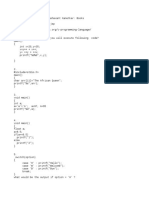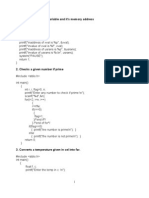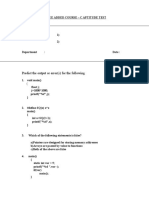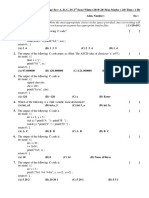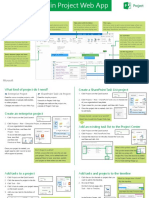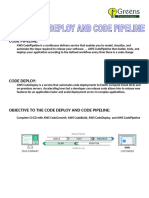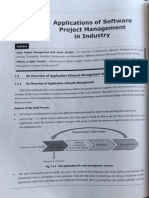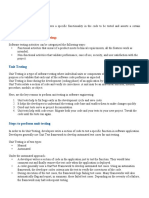0% found this document useful (0 votes)
35 views13 pagesLoops Questions
The document contains a series of C programming code snippets that demonstrate various types of loops, including while, for, and do-while loops. Each snippet includes different logic and conditions, showcasing how loops can be used to control program flow and perform repetitive tasks. Additionally, there are questions related to loop execution counts and expected outputs from the provided code.
Uploaded by
Sakthi Sakthi AsmCopyright
© © All Rights Reserved
We take content rights seriously. If you suspect this is your content, claim it here.
Available Formats
Download as PDF, TXT or read online on Scribd
0% found this document useful (0 votes)
35 views13 pagesLoops Questions
The document contains a series of C programming code snippets that demonstrate various types of loops, including while, for, and do-while loops. Each snippet includes different logic and conditions, showcasing how loops can be used to control program flow and perform repetitive tasks. Additionally, there are questions related to loop execution counts and expected outputs from the provided code.
Uploaded by
Sakthi Sakthi AsmCopyright
© © All Rights Reserved
We take content rights seriously. If you suspect this is your content, claim it here.
Available Formats
Download as PDF, TXT or read online on Scribd
/ 13











